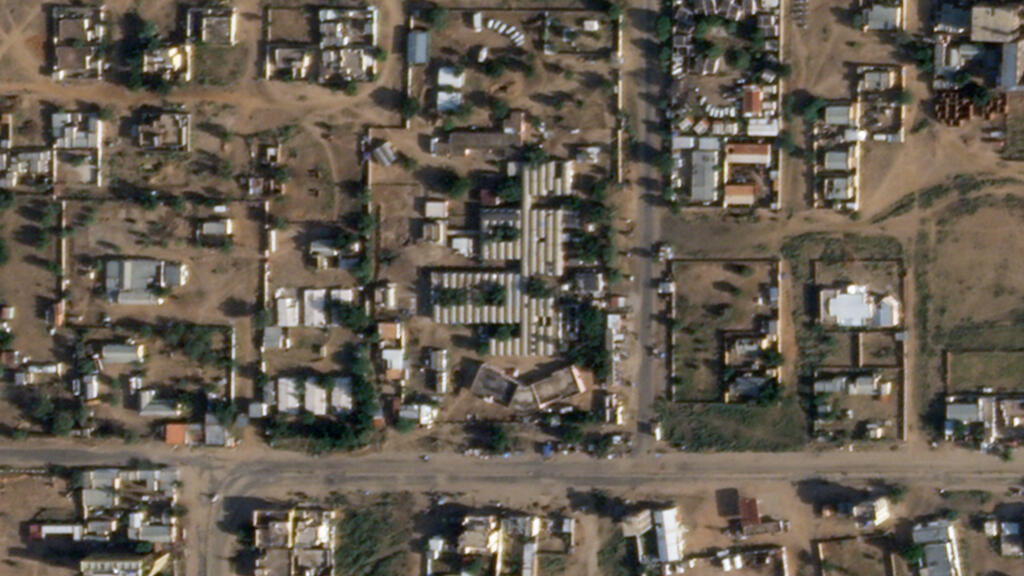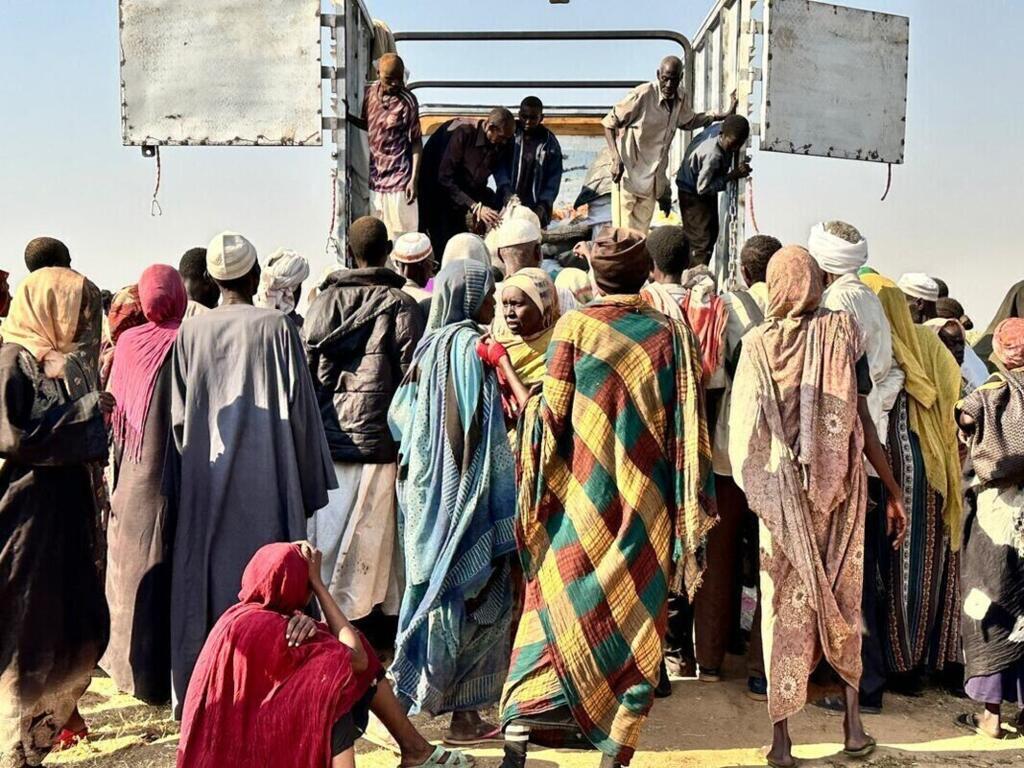
The fall of El Fasher, the last army stronghold in Darfur, has become a turning point in Sudan's war. Last week, after an 18-month siege, the powerful paramilitary Rapid Support Forces seized the city, leaving thousands dead or displaced and many civilians still trapped. RFI spoke to an analyst who warns Sudan could now be on the brink of a split between east and west.
Since the RSF takeover, reports have emerged of executions, sexual violence, looting, attacks on aid workers and abductions in and around El-Fasher, where communications remain largely cut off.
The prosecutor's office at the International Criminal Court warned Monday that atrocities committed in El-Fasher could constitute war crimes and crimes against humanity.
Sudan’s government accuses the United Arab Emirates of arming the RSF – a charge the Emirates denies.
However, Sudanese expert Professor Suliman Baldo, head of the Sudan Transparency and Policy Tracker, says the capture of El Fasher is no triumph. He calls it a “political and moral defeat” for the RSF. Speaking from Nairobi, he tells RFI’s Christophe Boisbouvier why.
RFI: How do you explain the RSF’s military victory in El Fasher, just six months after their defeat in Khartoum?
SB: The RSF had imposed a very strict siege on El Fasher for more than 18 months, blocking even basic food and medical supplies from reaching local hospitals. They bombarded the city throughout this time. They also used drones against El Fasher.
RFI: What role did these sophisticated Chinese-made drones play in their victory?
SB: The RSF obtained advanced Chinese drones several months ago, along with air defence systems that stopped the Sudanese Air Force from resupplying its garrison in El Fasher.
RFI: Did the United Arab Emirates and Chad play a part in this military success?
SB: The Emirates are the main supplier of all types of military equipment to the RSF, so they played a major role in the developments that led to this capture. Chad is merely an instrument in the hands of the Emirates, just as Haftar’s Libya is, especially when it comes to supporting the RSF.
African Union condemns atrocities, 'war crimes' in Sudan's El-Fasher
RFI: For a week now, multiple reports have described atrocities committed by the RSF against civilians from non-Arab communities, especially the Zaghawa. Are we witnessing a repeat of the massacre in El Geneina, where 15,000 Masalit were killed in June 2023?
SB: I don’t believe all those killed in El Fasher were Zaghawa. The behaviour of the RSF is completely out of control. When they entered the city, the army and its allied joint forces had already withdrawn, leaving behind a quarter of a million civilians.
There was targeted violence against the Zaghawa, but it was also indiscriminate. Members of different ethnic groups were attacked as an act of revenge against residents who had resisted during the siege.
RFI: Some observers compare the situation to the early stages of the 1994 Rwandan genocide.
SB: What happened was horrific – systematic atrocities and crimes. But I don’t believe there was an intention to eliminate a section of the population on ethnic grounds.

RFI: French researcher Marc Lavergne says the RSF are a band of rapists and looters who long did the Sudanese army’s dirty work.
SB: The RSF were created by the Sudanese army. It was the army that trained, armed and equipped them to fight as a counter-insurgency force, giving them free rein to attack civilians in Darfur and elsewhere, including the Nuba Mountains.
The two forces worked together when they staged the 2021 coup against Prime Minister Abdalla Hamdok’s civilian government. They only turned on each other afterwards, driven by the personal ambitions of generals Burhan and Hemedti. So yes, the RSF are certainly a creation of the Sudanese army.
RFI: General Hemedti says he has arrested fighters suspected of atrocities and launched an investigation. Is he trying to avoid responsibility?
SB: This is a reaction to worldwide condemnation, and also to outrage among the local population over what happened in El Fasher. The RSF did not expect such a collective response. Announcing investigations is a way to contain the damage caused by these killings.
Of course, the capture of El Fasher is a military victory – but what followed is a total political and moral defeat for the RSF. Their growing record of war crimes and crimes against humanity has destroyed whatever legitimacy they may have claimed.
Investigation uncovers RSF military base hidden in Libyan desert
RFI: What about the former Darfuri rebel groups allied with the army – the Sudan Liberation Movement of Minni Minnawi and the Justice and Equality Movement (JEM) of Jibril Ibrahim?
SB: Both groups stayed neutral at the start of the war, from April to October 2023, before deciding to ally with the army against the RSF. That decision put their own communities at risk, given the ethnic polarisation between the Zaghawa – who make up most of these groups – and the Arab-origin majority within the RSF.
They’ve paid a heavy price, losing many fighters and senior commanders. Today they’re politically adrift.
RFI: Should we now expect fighting for control of Kordofan, the province halfway between El Fasher and Khartoum?
SB: Yes. The fall of El Fasher was followed quickly by the capture of Bara, near the capital of North Kordofan – a rich and strategic region. Fighting has already moved from Darfur into Kordofan.
For the RSF, the goal is to cut army supply lines and seize control of key roads. The battle there is fierce, and I expect the RSF will also try to take the route between El Obeid and the White Nile, targeting towns like Dilling.
UN urges action on Sudan's 'forgotten war' as humanitarian crisis takes hold
RFI: So even though both sides control large parts of the country, you don’t see possible negotiations between Hemedti and Burhan?
SB: Both are under pressure from the so-called Quad – the United States and its regional allies Egypt, Saudi Arabia and the Emirates – to agree to an unconditional humanitarian ceasefire. They’ve even been invited to Washington for this. But I doubt they’ll sign, given their militaristic mindset and the humiliation each has suffered at the hands of the other. The desire for revenge is still strong.
RFI: After South Sudan’s secession in 2011, could we see a new partition – this time of Sudan between east and west?
SB: There will be a de facto partition, with two rival governments controlling different halves of the country. But I don’t think there’ll be a formal secession of Darfur or western Sudan. It’ll be more like Libya, with two administrations each holding territory and coexisting for a while to limit the damage to civilians and to their own interests. But not a separation of the west from the rest of Sudan.
RFI: So no independent "West Sudan" like South Sudan’s separation in 2011?
SB: I don’t believe the RSF or their political allies are seeking independence for the west. They’re demanding political rights, state reform and changes in the security sector and governance structure – not secession.
This interview was adapted from the original version in French and lightly edited for clarity







